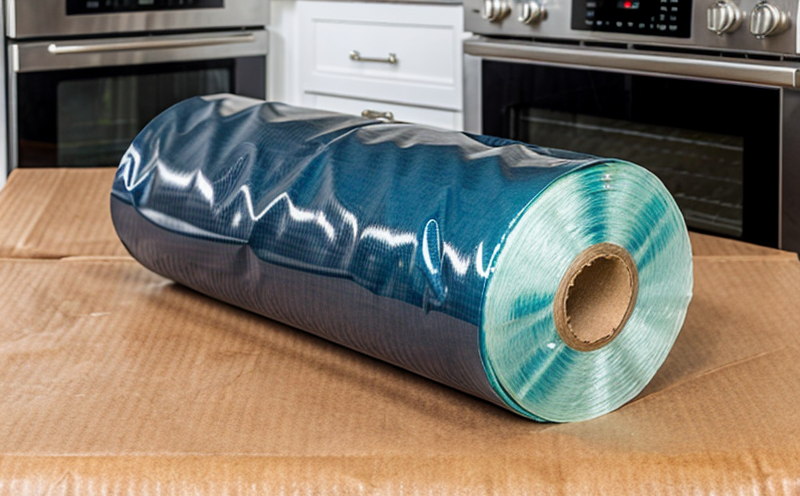EN 13432 Compostability Testing of Plastic Household Wraps
The European Standard EN 13432 specifies requirements and test methods for packaging that can be composted under industrial conditions. This standard is pivotal for ensuring that plastic household wraps meet the necessary criteria to biodegrade in municipal or industrial composting facilities, thereby reducing environmental impact.
EN 13432 compliance testing involves several stages: initial assessment of the material's characteristics, determination of the product's ability to degrade under industrial composting conditions, and evaluation of the resulting compost for its quality. For plastic household wraps, this process ensures that they decompose into harmless substances without leaving harmful residues.
The testing procedure begins with the selection of appropriate specimens representing the intended product. These specimens undergo a series of tests to determine their compostability under controlled conditions. Key parameters include temperature, moisture content, and microbial activity levels within industrial composting facilities.
Once the samples have been subjected to these environmental factors for an extended period, they are analyzed using various analytical techniques such as mass loss analysis, residual carbon content measurement, and in-field biodegradation testing. Compliance with EN 13432 requires that at least 90% of the plastic should decompose into CO₂ during industrial composting within nine months.
Understanding the nuances of this standard is crucial for quality managers, compliance officers, R&D engineers, and procurement specialists involved in developing or sourcing biodegradable plastics. By adhering to EN 13432 guidelines, manufacturers ensure their products contribute positively towards sustainable waste management practices.
Scope and Methodology
| Test Stage | Description | Key Metrics |
|---|---|---|
| Initial Characterization | Determination of the material composition, including additives and fillers. | Material type, additives content, filler percentage. |
| Biodegradability Assessment | Evaluation of the product's decomposition rate under defined composting conditions. | Mass loss over time, residual carbon content post-decomposition. |
| In-Field Testing | Observation of the final compost produced after biodegradation testing. | Potential for plant growth, absence of harmful residues. |
The initial characterization stage involves detailed analysis to understand the chemical composition and physical properties of the plastic household wrap. This step ensures that all components are suitable for industrial composting environments. Following this, biodegradability assessment focuses on measuring how quickly the material breaks down under specific conditions—typically involving high temperatures, humidity levels, and microbial activity present in industrial compost piles.
In-field testing complements laboratory results by providing insights into whether the resulting compost is suitable for agricultural use without causing any adverse effects. Compliance with EN 13432 mandates that not only must there be significant reduction in mass but also negligible presence of non-biodegradable elements such as metals or persistent synthetic compounds.
Industry Applications
| Application | Description | Benefits |
|---|---|---|
| Horticultural Packaging | Use of biodegradable wraps for protecting plants during transportation. | Reduces landfill waste, supports sustainable agriculture practices. |
| Retail Solutions | Incorporation into retail packaging systems to enhance eco-friendliness. | Makes brands more appealing to environmentally conscious consumers. |
| Food Preservation | Development of compostable wraps for fresh produce storage. | Extends shelf life while minimizing environmental footprint. |
The application of EN 13432 compliant plastic household wraps extends across various sectors where sustainable solutions are sought. In horticulture, these wraps serve as protective barriers during the distribution phase, ensuring that plants remain undamaged until they reach their destination. By adopting such measures, farmers and retailers contribute significantly towards reducing agricultural waste.
For retail applications, integrating biodegradable packaging into existing supply chains enhances brand reputation among eco-conscious consumers. Such initiatives foster trust between businesses and customers while promoting responsible consumption patterns. Additionally, using compostable wraps for fresh produce helps maintain product quality throughout the supply chain, ultimately improving customer satisfaction.
Environmental and Sustainability Contributions
The implementation of EN 13432 compliant plastic household wraps plays a crucial role in advancing environmental sustainability goals. These products provide an alternative to traditional petroleum-based plastics, which are notoriously difficult to dispose of properly due to their slow decomposition rates.
By ensuring that packaging materials break down safely and effectively within industrial composting facilities, EN 13432 promotes the circular economy concept by closing loops in material flows. This approach minimizes reliance on non-renewable resources like fossil fuels while encouraging responsible production processes.
The use of biodegradable household wraps also supports biodiversity conservation efforts as they contribute to healthier soil conditions when incorporated into agricultural settings post-composting. Furthermore, compliance with this standard aligns product offerings with global sustainability initiatives aimed at reducing greenhouse gas emissions associated with waste disposal methods.
For companies committed to corporate social responsibility (CSR) objectives, adopting EN 13432 compliant practices demonstrates a proactive stance against climate change impacts and helps build positive public perceptions about brand integrity.





